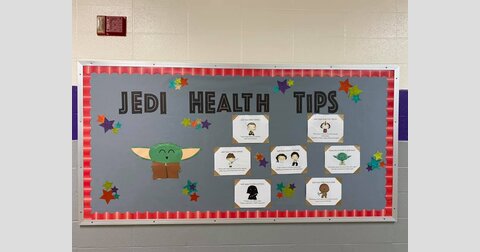A Mental Health Therapeutic State Advancing In Michigan’s Public Schools
Government response to mediocre reading, writing and arithmetic results is to expand the mission
The teachers union at the Detroit public schools district threatened an illegal work stoppage, which it called a safety strike, at the start of the 2020 school year demanding certain conditions before returning to the classroom during the COVID-19 pandemic. Superintendent Nikolai Vitti warned that children would pay a price, measured in mental health and psychological consequences, not just academic losses.
“A lot of children will not be able to stay focused and engaged and receive the support they need academically and socially, emotionally,” Vitti said of closing classrooms, according to a July 14, 2020, story by NBC News.
Vitti’s concerns have been validated. Detroit teachers did not return to their classrooms until early 2022, and the mental health damage to locked-out children is now being widely reported.
The Journal of the American Medical Association reports that schools that opted for remote instruction were linked to deteriorating mental health in students. The damage was strongest in poor, Black, and Hispanic communities. Eighty-two percent of the Detroit school population is Black, and 13% is Hispanic.
Districts around the state and nation, including the one in Detroit, have responded to the pandemic by demanding more taxpayer dollars, which they are getting. But that’s not all.
Schools and legislatures, prompted by public health and social welfare authorities, are moving closer to creating a therapeutic public school establishment that goes far beyond teaching reading, writing and arithmetic. Gov. Gretchen Whitmer’s Department of Education is on board, having called for injecting into schools a social welfare component it calls a whole child policy.
Specifically, Whitmer has proposed using next year’s state budget to make schools a provider of mental health services to children.
The Detroit school district is already spending $10 million to hire social workers and mental health professionals, according to Chalkbeat Detroit. It is asking for more, as are other districts in the state. Whitmer has proposed $361 million in next year’s state budget for schools to expand their role as mental health treatment providers for students.
The Michigan Department of Education’s whole child agenda includes cognitive, physical, behavioral, social and emotional provisions and potential interventions going far beyond teaching the three R’s and other academic subjects. Department experts also want to extend their authority into what they call the P-20 system, extending from preschool through age 20.
Public schools’ expanded mission would extend to other services, including “clothing, nutrition, physical, behavioral, social-emotional, mental health, post-secondary access, career readiness, tutoring, mentoring, and other supports necessary for students to stay in school, be promoted, and graduate on time.”
Michigan Department of Education figures indicate there were 234 social workers and 330 behavioral health specialists with a range of certificates and credentials operating in public schools in the 2017-18 fiscal year. Whitmer announced in December that schools are recruiting more than 560 psychologists, social workers, nurses and counselors.
A bill to move the school establishment in this direction passed the Michigan Senate unanimously in September. Introduced by Democrat Sen. Sylvia Santana, Senate Bill 321, would add a mental health first aid component to the continuing education classes teachers must take. It would require officials in the state education and health departments to create lists of potential risk factors and warning signs for mental illness in children.
Michigan Capitol Confidential is the news source produced by the Mackinac Center for Public Policy. Michigan Capitol Confidential reports with a free-market news perspective.

